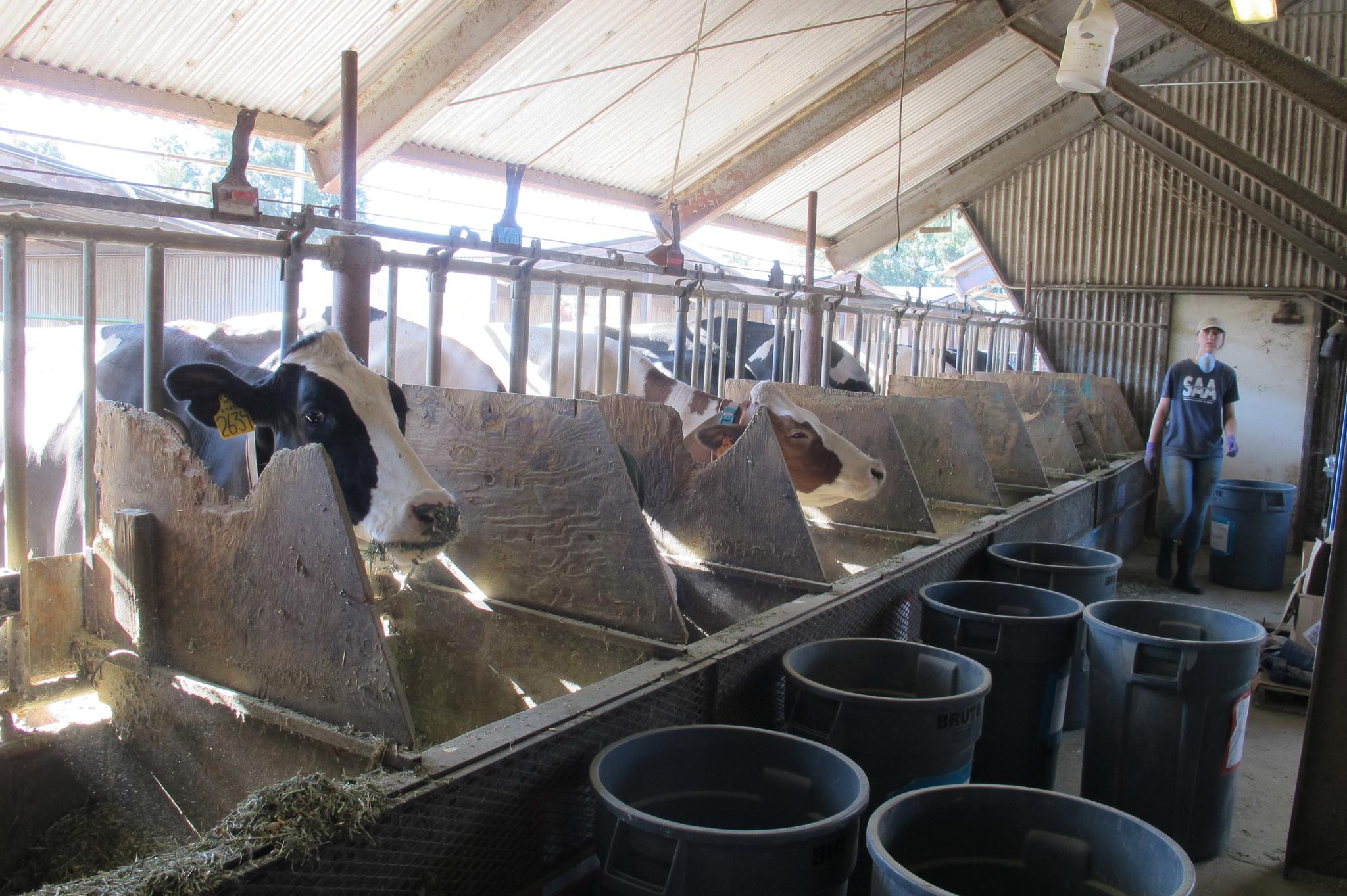Surf And Turf: To Reduce Gas Emissions From Cows, Scientists Look To The Ocean
When cows burp, they emit the potent greenhouse gas methane into the atmosphere. But by adding seaweed to the cows' diets, researchers are noticing a dramatic reduction in methane production.
by Merrit Kennedy
Jul 03, 2018
4 minutes

Scientists think they can reduce greenhouse gas emissions by tweaking the food that cows eat. A recent experiment from the University of California, Davis suggests that adding seaweed to cattle feed can dramatically decrease their emissions of the potent gas methane.
Livestock is a major source of greenhouse gases worldwide. About quarter of the methane emissions due to human activity in the U.S. can be chalked up to gas released from these animals, according to the U.S. Environmental Protection Agency.
There's a pen at the University of California, Davis, where scientists were closely observing 12 research cows on a recent morning.
You’re reading a preview, subscribe to read more.
Start your free 30 days



